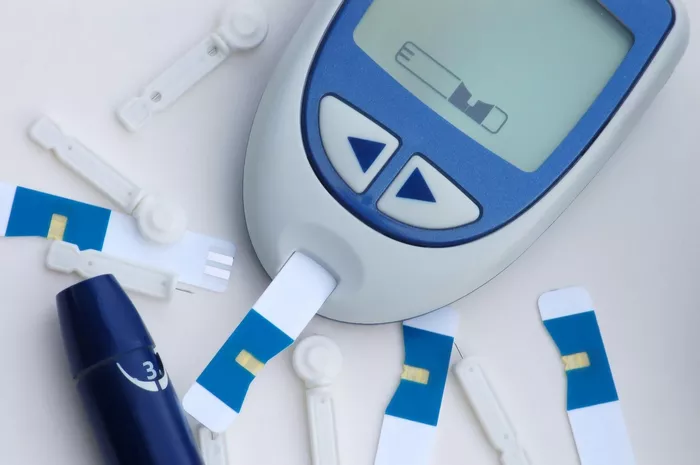Understanding Carbohydrates in Fruits
Carbohydrates are one of the main macronutrients found in food and are a primary source of energy for the body. They are classified into three main types: sugars, starches, and fiber. Fruits primarily contain simple sugars, such as fructose, glucose, and sucrose, which can rapidly affect blood glucose levels.
For individuals with diabetes, managing carbohydrate intake is essential to maintain stable blood sugar levels. Carbohydrate counting, glycemic index, and glycemic load are tools commonly used to measure and manage the impact of carbohydrates on blood sugar.
The Role of Fiber
Fiber is an important component of fruits that can mitigate the impact of carbohydrates on blood sugar levels. It slows down the absorption of sugar in the bloodstream, helping to prevent spikes in blood glucose. High-fiber fruits can therefore be a better choice for diabetics.
Identifying Low-Carbohydrate Fruits
When considering low-carbohydrate fruits, it’s important to look at the net carbohydrate content. Net carbs are calculated by subtracting the fiber content from the total carbohydrates. This gives a more accurate picture of how the fruit will affect blood sugar levels.
Berries: The Low-Carb Champions
Among all fruits, berries often come out on top as the lowest in carbohydrates. Here’s a detailed look at some of the best low-carb berry options:
1. Raspberries
- Total Carbohydrates: 11.94 grams per cup
- Dietary Fiber: 8.0 grams per cup
- Net Carbohydrates: 3.94 grams per cup
Raspberries are incredibly low in net carbs due to their high fiber content. They are also rich in vitamins C and K, manganese, and antioxidants.
2. Strawberries
- Total Carbohydrates: 11.67 grams per cup
- Dietary Fiber: 3.0 grams per cup
- Net Carbohydrates: 8.67 grams per cup
Strawberries are another excellent low-carb fruit. They provide a good dose of vitamin C, manganese, folate, and antioxidants, which are beneficial for heart health and reducing inflammation.
3. Blackberries
- Total Carbohydrates: 13.84 grams per cup
- Dietary Fiber: 7.6 grams per cup
- Net Carbohydrates: 6.24 grams per cup
Blackberries are rich in fiber and vitamins C and K. They also contain high levels of anthocyanins, which are powerful antioxidants that help reduce inflammation.
4. Blueberries
- Total Carbohydrates: 21.45 grams per cup
- Dietary Fiber: 3.6 grams per cup
- Net Carbohydrates: 17.85 grams per cup
While slightly higher in carbohydrates than other berries, blueberries are still a relatively low-carb option. They are packed with vitamins C and K, manganese, and a variety of antioxidants.
Other Low-Carb Fruits
While berries are generally the lowest in carbohydrates, there are other fruits that can be included in a low-carb diet. Here are a few noteworthy options:
1. Avocado
- Total Carbohydrates: 12.8 grams per fruit
- Dietary Fiber: 10 grams per fruit
- Net Carbohydrates: 2.8 grams per fruit
Technically a fruit, avocados are exceptionally low in net carbs and high in healthy fats, fiber, and potassium. They are an excellent choice for those looking to manage their carbohydrate intake.
2. Tomatoes
- Total Carbohydrates: 7 grams per cup
- Dietary Fiber: 2.2 grams per cup
- Net Carbohydrates: 4.8 grams per cup
Tomatoes are another low-carb fruit option. They are rich in vitamins C and K, potassium, and antioxidants such as lycopene, which is linked to many health benefits.
3. Lemons
- Total Carbohydrates: 5.4 grams per fruit
- Dietary Fiber: 1.6 grams per fruit
- Net Carbohydrates: 3.8 grams per fruit
Lemons are very low in carbohydrates and can be used to flavor water or dishes without significantly impacting blood sugar levels. They are high in vitamin C and beneficial plant compounds.
Benefits of Including Low-Carb Fruits in a Diabetic Diet
Incorporating low-carb fruits into a diabetic diet offers several benefits:
1. Nutrient Density
Low-carb fruits are packed with essential vitamins, minerals, and antioxidants that support overall health. These nutrients are crucial for managing diabetes-related complications and maintaining a healthy immune system.
2. Fiber Content
The high fiber content in these fruits aids in digestion, helps maintain stable blood sugar levels, and promotes satiety, which can be beneficial for weight management.
3. Antioxidant Properties
Low-carb fruits are rich in antioxidants, which help combat oxidative stress and inflammation. This is particularly important for individuals with diabetes, as they are at higher risk for cardiovascular diseases and other complications.
4. Hydration
Many low-carb fruits have high water content, which helps keep the body hydrated. Proper hydration is essential for overall health and can assist in maintaining optimal blood sugar levels.
Practical Tips for Including Low-Carb Fruits in Your Diet
1. Portion Control
Even with low-carb fruits, portion control is key. Monitor serving sizes to ensure you are not consuming too many carbohydrates in one sitting.
2. Pair with Protein or Fat
To further stabilize blood sugar levels, pair low-carb fruits with a source of protein or healthy fat. For example, enjoy berries with Greek yogurt or avocado with a small handful of nuts.
3. Choose Whole Fruits Over Juices
Whole fruits contain fiber, which is often lost in juices. Eating whole fruits will provide more health benefits and less impact on blood sugar levels.
4. Monitor Blood Sugar Levels
Keep track of your blood sugar levels before and after consuming fruits. This will help you understand how different fruits affect your body and allow you to make informed dietary choices.
See also: How to Manage Low Blood Sugar at Night
Conclusion
For individuals managing diabetes, choosing the right fruits can make a significant difference in maintaining stable blood sugar levels. Berries, such as raspberries, strawberries, blackberries, and blueberries, along with other low-carb options like avocados, tomatoes, and lemons, offer a nutritious way to enjoy the sweetness of fruit without the high carbohydrate content.
Incorporating these fruits into a balanced diet, while being mindful of portion sizes and pairing them with protein or healthy fats, can help manage diabetes effectively. Always consult with a healthcare provider or a dietitian to tailor dietary choices to your specific health needs and conditions. By making informed decisions, you can enjoy the benefits of fruits while keeping your blood sugar levels in check.
Related topics:
How Many Eggs Should a Diabetic Eat for Breakfast?


























